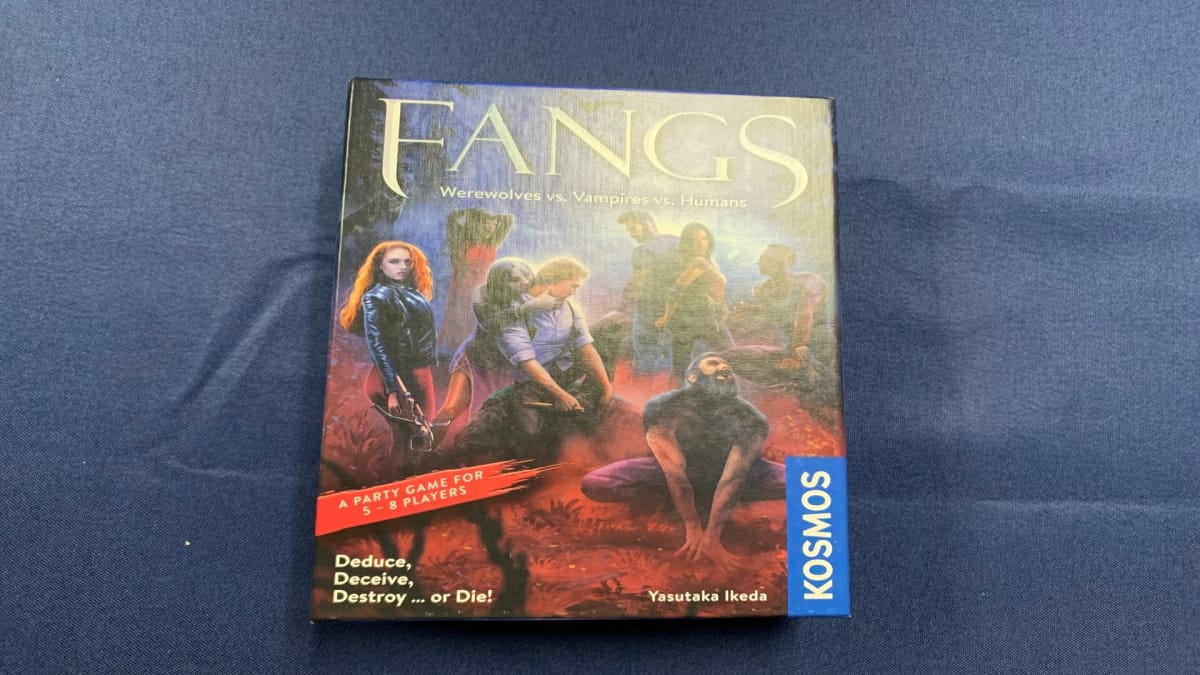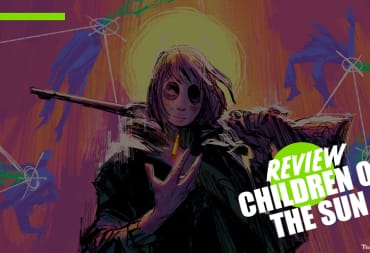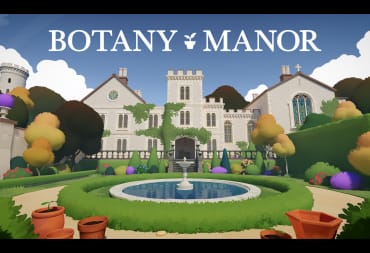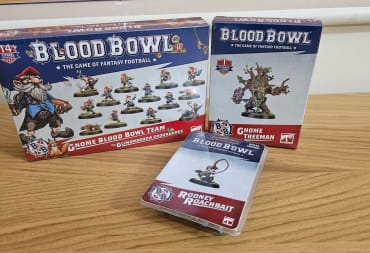My eyes kept shifting to the four other players at the table. Tensions were high, everyone was on the edge of death, and the oracle readings didn't give me a lot to work with. I rolled the dice hoping to land on a certain location, only to end up in the same spot as someone who I believed to be a werewolf. Better him than me I suppose. I used my final action to attack him and rolled the attack dice. I was successful, only to find out he was in fact a human. Oh well, I was a vampire anyway.
These are the scenarios I found myself in while playing Fangs, designed by Yasutaka Ikeda and published by Kosmos.
Fangs is a social deduction party game meant for 5-8 players. Each player chooses a character card at random that assigns them to one of three groups: vampires, werewolves, and humans. These cards remain hidden. Players then take turns rolling dice and moving to six locations on a board, collecting equipment and encountering events drawn from decks of cards. In addition, they must make alliances, bluff, lie, and scheme their way to their respective personal goals. Everyone's health is managed on a shared track, with characters' maximums marked by initials. Vampires win when all werewolves are killed. Werewolves win when all humans are killed. Humans have their own unique goals depending on which character card they are given and can range wildly. When any of these end goal requirements are reached, the game ends and the corresponding side wins.
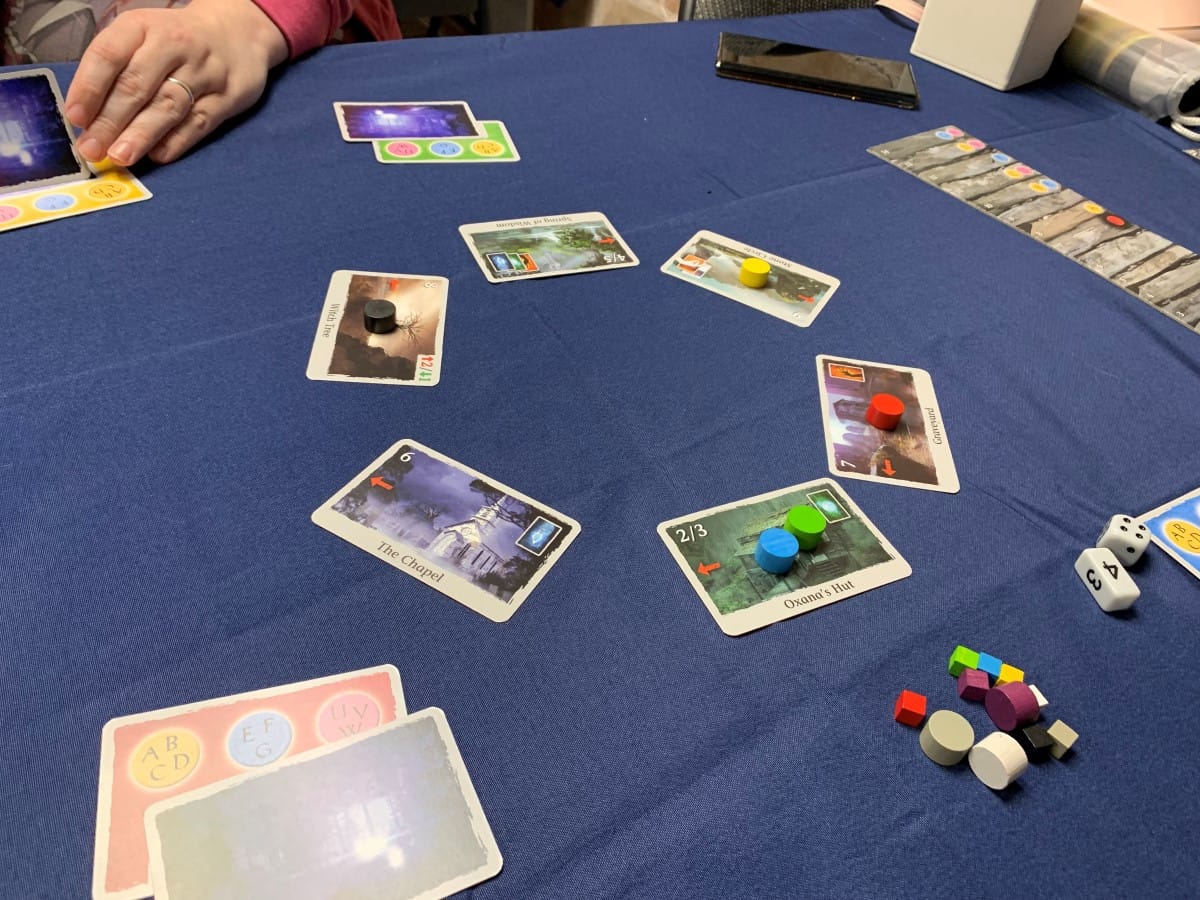
First, it must be stated that Fangs is actually playable with four people. However, in doing so you simply deal out werewolf and vampire cards. This cuts down on a lot of the guesswork and duplicitous intention that makes a social deduction game work, especially since Humans function as wild cards with their objectives.
The first thing that stuck out to me with Fangs is how it does a good job with obfuscating information. As mentioned before, there are three decks you draw from. One is an oracle deck, whose text you read to yourself then use it to interrogate a player to your left, usually with a yes/no question. The other two decks are events and equipment decks. The former has events that you must read out loud and are generally positive like healing wounds. The latter has useful items, but also contain negative encounters that can effect you and nearby players. Better still, they're all worded in a way to keep players guessing until the cards finally flip over. No matter what goes down, you only get a small bread crumb of information when it comes to someone else's agenda.
Second, while there is a lot of group interplay, how movement and damage are determined are mostly straightforward. You roll a d4 and a d6 with each location on the map determined by a certain result. If you attack another player in the same location, you roll the d4 and d6 again, with the damage being the difference between the result. Roll a 1 on the d4 and a 6 on the d6 gets a result of 5 for example.
The only area where I think things are a little weird are character card names and how that factors into the game. The character cards have one of three different starting initials, which determines their maximum health. However, during a standard set-up, only a fixed number of these cards can be distributed for a game. It's meant to ensure that one side doesn't have a health advantage over the other, but it feels restrictive all the same.
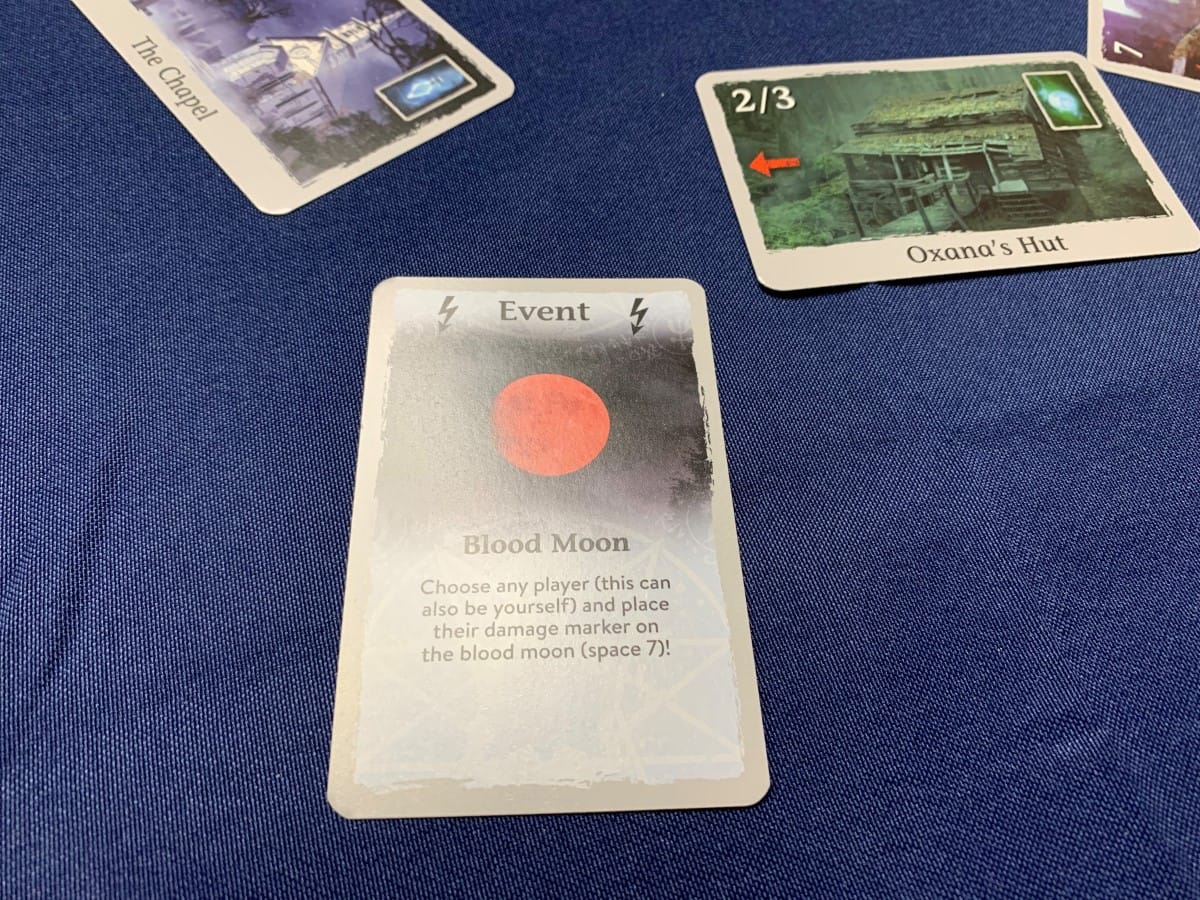
Thankfully, Fangs has a lot of alternate gameplay modes and cards than the tiny box would imply. There are multiple variations of group interactions: just Humans and Werewolves, just Humans and Vampires, completely random free-for-all etc., as well as more advanced character cards for more experienced players.It's effectively an expansion set available right out of the box.
If there is a minor complaint I do have it is with the localization. For the most part, Fangs' English translation is fantastic. It's an impressive feat when you consider the game was by a Japanese developer and published by a studio based in Germany. In fact, the core book has over a dozen pages dedicated to rules clarity, errata and FAQs. But there are spots things seem overcorrected. Certain events or abilities are ruled that they must happen in a certain order, but how the game communicates this is in two ways. The first is a simple phrase, “You must pick another player to do X” is used as an example and is the most straightforward. The second is an exclamation point placed at the end of the phrase. Half of the time it sticks out as strange since the card as written already makes it clear in what order the card's effects take place. It's the most obvious spot where the language barrier is at its most apparent, but it only sticks out by how well done the rest of the text has been localized.
Those minor issues aside, Fangs manages to be an immensely enjoyable party experience. While the game itself is dripping with gothic atmosphere thanks to its art direction and premise, there are moments of comedy as well. This is mostly felt with the Human character cards. One of the character card's actual win condition is to be the first one to die, playing into the “comic relief dies first” horror trope. Of the the three games I played, this guy only popped up once and it lead to a laugh riot. This was in stark contrast to the last game where someone managed to get what amounted to a napalm mortar and had a “burn them all” approach to victory. It's difficult to balance the trappings of a supernatural party game like this with some goofy comedy, but Fangs pulls it off wonderfully.
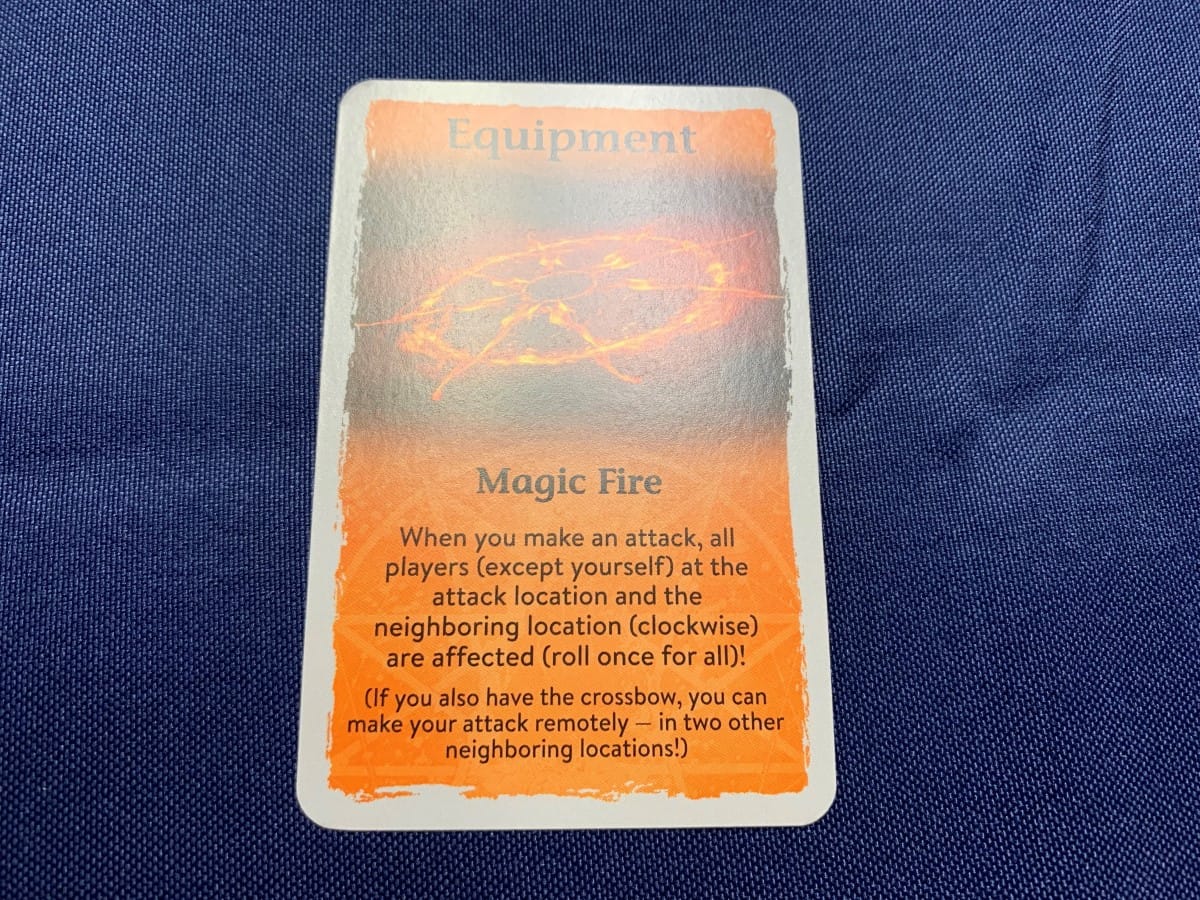
The Bottom Line
If you have a large group of friends that enjoys a more spooky take on social deduction, then Fangs is worth a look. It is packed full of tactics, different play modes, and has plenty of opportunities to screw over friends. If you enjoy horror or Halloween-themed takes on party games, pick this one up.
Get This Game If:
- You Have A Lot of Friends
- Love Horror-Themed Party Games
- You Want A Lot For Your Money
Don't Get This Game If:
- You Can't Lie To Save Your Life
- Have Trouble Getting Groups Together
The copy of Fangs used for this review was provided by the publisher.
Review Summary
Have a tip, or want to point out something we missed? Leave a Comment or e-mail us at tips@techraptor.net
